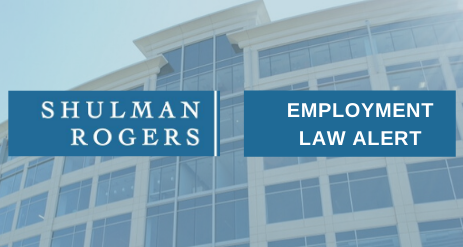October 18, 2022

|
On October 11, 2022, the Department of Labor (“DOL”) published a Notice of Proposed Rulemaking (“NPRM”) which reverses course from a January 2021 Trump-era final rule dictating when a worker is classified as an employee or independent contractor under the Fair Labor Standards Act (“FLSA”). The Trump Administration’s rule is more employer-friendly, while the current NPRM would, once again, make it more difficult for employers to classify workers as independent contractors under the FLSA. When implemented and enforced, this change will have serious legal and monetary consequences for employers who misclassify workers. BackgroundThe Trump-era rule used an “economic reality” test that focused on two “core” factors – considering (i) the worker’s nature and degree of control over their work; and (ii) whether a worker is economically dependent on an employer for work. Succinctly, if workers depend on someone else’s business for the opportunity to render service, then they are most likely employees; if they are in business for themselves, they are most likely independent contractors. Proposed RuleIn contrast, the newly proposed DOL rule would rescind the prior rule. Then, instead of using the “economic reality” test, this new rule uses a “totality of the circumstances” analysis, considering six (non-exhaustive) factors that have equal weight. These include: (i) the opportunity for profit or loss depending on managerial skill, (ii) the investment by the worker or employer; (iii) the degree of permanence of the work relationship; (iv) the nature and degree of control over the worker; (v) the extent to which the work performed is an integral part of the employer’s business; and (vi) the worker’s skills and initiative. Once the new rule goes into effect, the ability to properly classify a worker as an independent contractor will be limited, and employers will face harsh consequences for worker misclassification including liquidated damages, IRS penalties, attorneys’ fees and even criminal charges if the IRS suspects that an employer intentionally misclassified its employees as independent contractors. TakeawayIn a tight labor market, employers are continuously challenged to meet staffing needs and retain their workers. Accordingly, with wages and benefits on the rise, employers may increasingly rely on independent contractors instead of employees to avoid employment taxes and withholdings, as well as other employment laws (including minimum wage obligations and overtime requirements of the FLSA). Stay tuned … as the Employment and Labor Law attorneys at Shulman Rogers will keep employers updated regarding this proposed rule and any other changes to the federal employment law landscape as they occur. |
|
|
MORE INFORMATIONThe contents of this Alert are for informational purposes only and do not constitute legal advice. If you have any questions about this Alert, please contact the Shulman Rogers attorney with whom you regularly work or a member of the Shulman Rogers Employment and Labor Law Group. To receive Employment Law Alerts and other timely news and information from Shulman Rogers, please click HERE to subscribe. |
Stay up to date with all the latest news and events.
